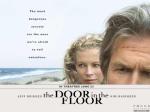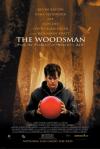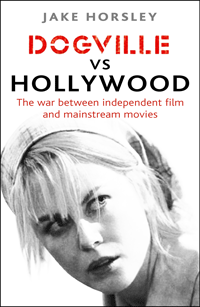


Jeff the Empath : Door in the Floor and An Appreciation of Jeff Bridges' Ineffable Magic
Another recent movie I would recommend is The Door in the Floor, with my personal favorite Jeff Bridges, who finally has a good, juicy role to sink his enormous acting chops into. Jeff is a funny actor, because if he doesn’t have a good part or a solid project to bring out his Herculean talents, he tends to walk through a movie and be indistinguishable from any other actor, becoming a kind of non-entity (as happened with the execrable, New Age slop K-Pax, in which Spacey did his nice guy routine again). But when Bridges gets a role to suit him, such as The Fisher King, The Fabulous Baker Boys, Fearless, American Heart, or to a lesser degree Door, he carries the movie to another plateau altogether.
I first saw Jeff in Thunderbolt and Lightfoot, back in my teenage Eastwood-mania days, and I still find it interesting to watch the movie and see how much more likeable and empathic Clint’s acting is here than in any of his other films from the same period. From the start, Jeff Bridges had an easy affability, a lazy, laughing spontaneity, that made him both lovable and completely believable, and it’s clear in this movie that Bridges' immense appeal rubs off on Clint, and that the relationship between the two men (a young drifter and a hardened criminal who team up on a heist) was reflected by that of the two actors making the movie (Bridges was just starting out, Clint, maybe 15 years older, was by then fully established).
My personal favorite Bridges role has got to be Baker Boys, however; in fact it may be my all-time favorite performance by any actor anywhere (De Niro’s Travis Bickle and Pacino’s Michael Corleone would be two others). Here Jeff, as the Jazz-loving, piano-playing half of a cheesy musical lounge duo, gets to act alongside his real-life brother Beau, and there is such a natural affinity between them (even when fighting) that the movie really flies. (It was written and directed by Steve Kloves, who along with Keith Gordon may be the most underrated American filmmaker around.) When Bridges is at his best, the movie enters into magikal realms of empathy and humor that few other movies even seem aware exist. It doesn’t hurt having Michelle Pfeiffer along for the ride, either. She and Bridges make probably the most convincing and achingly doomed lovers ever seen on the American screen.
Door in the Floor, directed by Tod Williams (The Adventures of Sebastian Cole) from a book by John Irving (Williams wisely only adapted the first third of the novel), is an original and entertaining work. Though perhaps in the end it is a little removed from its characters and hence slightly less than fully involving, it at least avoids the sentimental pitfalls that some of the other Irving adaptations have fallen into. Above all, it has Jeff Bridges as the eccentric, philandering painter/children’s writer, Ted Cole. As Bridges plays him, Cole has hidden reservoirs of pain lurking beneath his abrasive charm. Cole has an irresitable (seeming) indifference to what people think of him, and there are few things more charming in a movie protagonist than not giving a damn about anyone. Although he has been written as something of a fraud and a jerk, Bridges gives Cole the freedom to create his own justification in our minds: he is a law (and a laughter) unto himself.
Bridges clearly revels in the task of creating Cole, and the delight he takes in fleshing out an already meaty role and making it his own fills every scene he's in to the brim. American movies rarely offer a greater high than Jeff Bridges on a roll, and Door in the Floor—though perhaps less haunting than it wants to be—offers just that, a chance to see America's finest, most empathic and most underappreciated screen actor flex his muscles.
OK, that's all for today. I am tired of writing now. This one's for you, Jeff.
Oh, i just found Jeff's personal web site and it's no surprise to find that's it's quite eccentric indeed, and definitely worth a look: www.jeffbridges.com












